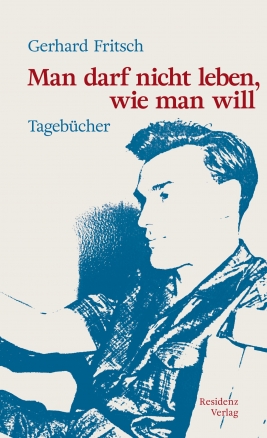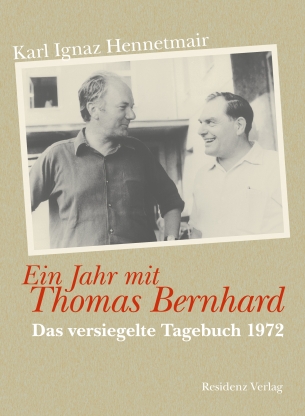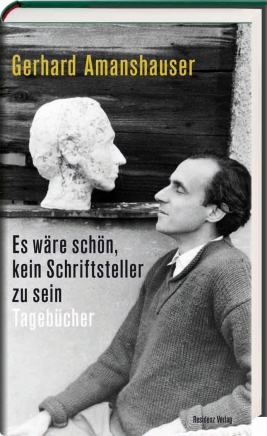Die Ausgabe seiner Tagebücher zeigt das von Selbstzweifeln zerfurchte Leben des österreichischen Schriftstellers. (…) Fritsch leidet, doch gelingen ihm zwischendurch tödlich genaue Sätze.
[Quelle: Willi Winkler, SÜDDEUTSCHE ZEITUNG]
Die Tagebücher Gerhard Fritschs sind dezidiert als intime Bekenntnisse zu sehen, nicht als Chronik für die Nachwelt.
[Quelle: Sebastian Gilli, FALTER]
Fritschs Tagebücher veranschaulichen, was es heißt ein hochbegabter und zugleich zutiefst zerrissener Mensch zu sein.
[Quelle: ZIB, ORF]
Kaum ein Autor ist zu seinem 50. Todestag so lebendig wie Gerhard Fritsch mit seinen Tagebüchern.
[Quelle: DIE PRESSE]
Die Tagebücher zeigen ihn als einen hochbegabten zugleich zutiefst zerrissenen Menschen. Dass sein Hang zu Frauenkleidern, seine Lust am Transvestitismus, eine zutiefst existenzielle Dimension für ihn hatten, wird mit diesem Buch erstmals unmissverständlich deutlich.
[Quelle: ORF BESTENLISTE]
Gerhard Fritsch zählte zu den prägendsten Gestalten der österreichischen Nachkriegsliteratur.
[Quelle: Katja Grasser, ORF KULTURMONTAG]
Ein Coming-out, bevor es den Begriff gab.
[Quelle: DEUTSCHLANDFUNK KULTUR]
Von den sowjetischen Panzern in Budapest schwenkt die Aufmerksamkeit nach Venedig: zu Wolkenbruch und Zahnschmerzen. Den privaten Charakter der Aufzeichnungen beweisen solche Sprünge. Fritsch baut nicht heimlich für die Nachwelt vor. Er kokettiert nicht und betreibt kein Wörterringen. Wortwiederholungen und ungehemmte Redundanz im Register der Empfindungen (eines Genervten) zeigen den uneitel-flüchtigen Alltagsrezensenten.
[Quelle: Jamal Tuschik, FAUST KULTUR]
Man lernt einen Schriftsteller und einen Menschen kennen, der gesellschaftlich und politisch sehr reflektiert ist (…).
[Quelle: Insa Wilke, WDR3, GUTENBERGS WELT]
Er war einer der bedeutendsten österreichischen Autoren der Nachkriegszeit. (…) Anhand seiner nun erschienenen Tagebücher kann man ihn neu entdecken.
[Quelle: KRONENZEITUNG]
Fritsch war ein maßgeblicher Repräsentant des Literaturbetriebs, missbrauchte aber diese Macht nicht, wie der Germanist Klaus Karstberger im Vorwort betont. Fritsch förderte junge Dichter wie den noch unbekannten Thomas Bernhard. (…)
[Quelle: Christian Pichler, OÖ VOLKSBLATT]
Er musste sich in Schürzen und Mieder kleiden, um bei sich selbst anzukommen. Man lernt den 1969 tragisch verstorbenen österreichischen Schriftsteller Gerhard Fritsch in seinen Tagebüchern ganz neu kennen.
[Quelle: Paul Jandl, NEUE ZÜRCHER ZEITUNG]
Un aspetto che poi colpisce il lettore dei giorni nostri è la forte attinenza con l’attualità.
[Quelle: Stefano Apostolo, OSSERVATORIO CRITICO DELLA GERMANISTICA]
Freunde der österreichischen Literatur und literaturwissenschaftlich Interessierte finden hier reichlich Material.
[Quelle: Andrea Kathrin Kraus, KREUZER]








